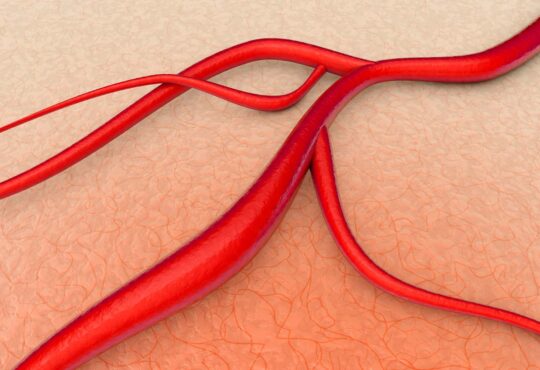
Today’s article is all about . . . err, I’ll think of it . . . just give me a second.
What were we talking about?
****************************
If that’s you on a bad day, you’re not alone.
According to Sabina Brennan, author of “Beating Brain Fog,” approximately 600 million people around the globe have it.
What is Brain Fog? Officially?
The use of “brain fog” as a term goes back to the early 1800’s. The German physician, Georg Greiner, described cognitive deficits during delirium as “fogging of the light of reason” and “clouding of consciousness.”
In the 1990’s, it became a popular way of describing symptoms of chronic fatigue syndrome and some autoimmune conditions.
It’s useful in a way, because we’ve all experienced it, if only when forced to wake up after a night of too-little sleep or too-much fun.
However, it’s not a recognized medical diagnosis, which is why the Centers for Disease Control and Prevention (CDC) doesn’t keep records on brain fog itself.
What is Brain Fog in Practice
It’s that frustrating feeling associated with:
* Reduced mental focus
* Inability to remember facts you know
* Lower mental (and probably physical as well) energy
* Difficulty in performing normal mental tasks
* Impaired concentration
If you’re now thinking clearly, you can see these symptoms are difficult to define and measure from the outside, making “brain fog” even more difficult to deal with.
If you get it, you know it, but how do you explain that yesterday you worked a crossword puzzle but today you barely remember what a crossword puzzle is?
Not to mention – let’s be for real here – some people apparently live most of their lives with brain fog. It’s simply their normal mental state.
What Can Cause Brain Fog
* Long Covid
* Allergies
* Dietary sensitivities
* Immune disorders
* Inflammatory disorders
* Menopause
* Attention Deficit Hyperactivity Disorder (ADHD)
* Anxiety
* Depression
* Kidney failure
* Lack of sleep
* Digestion problems
That’s quite a list, and it’s just a representative sample. Your brain fog may be the result of one or more of the above, or something else entirely.
Brain Fog is NOT Dementia or Alzheimer’s
That’s the good news.
Although brain fog is loss of memory and impaired ability to think straight, by itself it is NOT a sign of dementia or Alzheimer’s.
Those conditions are associated with loss of day-to-day functioning.
If you’ve become unable to work.
If you’ve become unable to perform routine household chores such as cooking and cleaning – or managing your own finances.
If you’ve limited or quit social activities.
Then you need to seek out qualified medical help.
Some Theories, Which May Be True in All or Many Cases
Scientists speculate brain fog may be the result of these physiological changes:
* Inflammation
* Imbalance in neurotransmitters
* Release of histamine – which also causes allergic reactions
The Takeaway
The first two are closely linked, and their solutions overlap.
We know what lowers chronic inflammation: eating whole plant foods such as vegetables, fruits, nuts, beans and seeds.
The more of them you eat, the more you consume Nature’s Anti-Inflammatory Medicines: antioxidants and polyphenols. Therefore, go for the most colorful plant foods: blueberries, dark green leafy vegetables, oranges and so on.
Also, go for variety. The more different kinds of polyphenols you take in, the better.
When you eat more plant foods for the polyphenols, you’re also taking in more fiber.
What does fiber have to do with brain fog?
You probably think neurotransmitters are all in your brain, but we’ve learned that’s far from true.
Fiber feeds beneficial bacteria in your intestinal tract. Unless you now eat large amounts of fiber (only 3% of Americans do, by the government’s standards, and many researchers in this area believe the government’s recommendations are too low for optimal health), your gut is in dybiosis. The ratio of unhealthy to healthy bacteria is out of balance.
But healthy bacteria manufacture so many neurotransmitters, medical researchers refer to intestines are your “second brain.”
If you’ve ever had a “gut feeling,” you know your intestines sometimes give you powerful signals. And if you don’t pay attention, you’ll be sorry.
That’s because a healthy gut does generate large amounts of neurotransmitters, like the brain located between your ears, and that brain and your intestines and heart are all connected by your vagus nerve. They coordinate signals.
Therefore, if your gut microbiome is in severe disbalance, your brain loses crucial support. Thinking becomes like walking with just one leg.
So it’s not surprising you notice the negative effects on your focus and memory.
Peppermint Oil May Help
Peppermint is rich in monoterpenes. That is, compounds such as menthol and menthone.
It appears to modulate neurotransmitters in your brain, including acetylcholine and GABA. Both of them support good cognition and mental alertness.
In a research study, two groups of healthy adults were given either peppermint oil of 60% monoterpenes or a placebo.
Members of the peppermint oil group demonstrated:
* Reduced mental fatigue
* Enhanced attention
* Improved working memory
The placebo group just got mentally worn out by the cognitive tests the scientists administered to all subjects, to measure cognitive function.
Pay Attention!
For most of us, most of the time, the problem is short-term. But if your mind becomes chronically fuzzy, you need to change any poor lifestyle choices that could be contributing to it.
1. Eat many more whole plant foods (whole, as in minimally processed)
2. Limit nights of too little sleep and/or too much fun
3. Limit alcohol
4, Limit cannabis intake
6. Get consistent, moderate exercise. That also reduces your level of chronic inflammation.
Still Confused?
See a doctor to check you out for more serious medical issues.
https://www.lifeextension.com/magazine/2022/4/brain-fog-solution
https://www.ohsu.edu/womens-health/brain-fog-vs-dementia
https://neuroscience.stanford.edu/news/brain-fog
https://www.cnbc.com/2021/05/31/why-you-may-be-struggling-with-brain-fog-and-how-to-beat-it.html
https://www.ncbi.nlm.nih.gov/pmc/articles/PMC9187342/
https://nutritionfacts.org/video/garden-variety-anti-inflammation/
https://www.youtube.com/watch?v=wOhrZQ649uc







